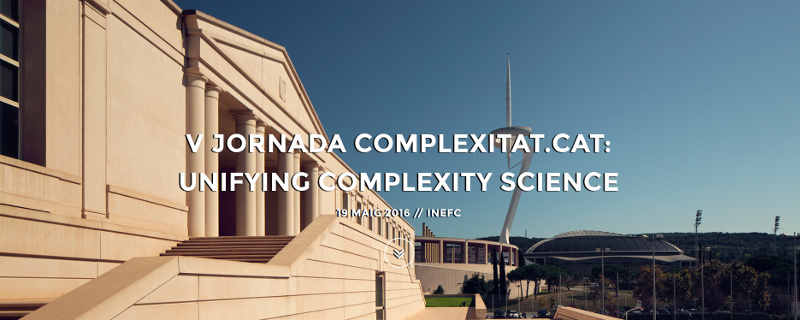Events
-
Seminar: Intrinsic noise profoundly alters the dynamics and steady state of morphogen-controlled bistable genetic switches
Speaker
Rubén Pérez Carrasco (University College London)Description
Bistable switches are a common regulatory motif in biological processes. In developing tissues, they are often controlled by gradients of secreted signalling molecules - morphogens -, providing a mechanism to convert a signalling gradient into stripes of gene expression that determine the arrangement of distinct cell types. In this talk I will analyze the temporal response of such a system focusing on the role of intrinsic fluctuations that result from the stochastic nature of gene expression. To tackle this problem I will make use of different approximations, using Gillespie simulations, Langevin equations and Minimum Action Path theory. The results reveal that noise induces a switching wave that propels the stripe boundary away from the morphogen source, eventually settling at a steady state different from the deterministic description.
-

Description
In the last decade, network theory has been revealed to be a perfect instrument to model the structure of complex systems and the dynamical process they are involved into. The wide variety of applications to social sciences, technological networks, biology, transportation and economic, to cite just only some of them, showed that network theory is suitable to provide new insights into many problems. Given the success of the Second Edition in 2015 of the Mediterranean School of Complex Networks, we call for applications to the Third Edition in 2016.
Organizers
Alephsys Lab, URV -

Organizers
Complex Systems in Sports, INEFC, UB & COMPLEXITAT - 2015
-
Description
In the last decade, network theory has been revealed to be a perfect instrument to model the structure of complex systems and the dynamical process they are involved into. The wide variety of applications to social sciences, technological networks, biology, transportation and economic, to cite just only some of them, showed that network theory is suitable to provide new insights into many problems. Given the success of the First Edition in 2014 of the Mediterranean School of Complex Networks, we call for applications to the Second Edition in 2015. The goal of this school is twofold: Provide a theoretical background to students (Master, PhD) and young researchers in the field, with particular attention to current trends in Network Science; ; Promote philosophical and scientific exchange between all participants, i.e., lecturers and attendants. For this reason, the program will involve lectures from experts in different fields (social science, game theory, human mobility, neuroscience, etc) for 70% of the duration of the school. The remaining time will be dedicated to: Flash talks given by attendants, followed by debates; Thematic round tables involving lecturers and attendants. The School will award two prizes: i) to one attendant, for the best flash talk; ii) to one lecturer, for the best lecture. The school will take place in Salina, a small island in the north of Sicily (Italy). Salina, fully covered by green vegetation and surrounded by the sea, represents a suitable small and quite environment to achieve the purposes of this school.
Organizers
Alex Arenas, Manlio de Domenico -
Description The problem of modelling cross-section dependency in multidimensional panel is an open line of research with several streams of applications in social and economic sciences, where several decisions are dynamically taken by a set of connected agents. In particular, we study large multidimentional panels from the music industry, which are often associated to complex pattern of internal dependency between the dynamic choices of different broadcasting companies (TV channels and radio stations). We present an exponential random model to jointly deal with the dynamic and structural aspect of such complex statistical setting, along with a Bayesian estimation framework. This type of models are usually related to the problem of computing their normalizing constants. We argued that the intractability of such constants entails a “double intractability” of the posterior distribution when the model is embedded into a Bayesian estimation framework. This drawback can be overcome by a specialized MCMC procedure, based on the joint simulation both from the parameter and the sample spaces. After a detailed analysis of the proposed statistical methodology, we present an empirical application to a large data set of song diffusion on the radio, where stations may have pairwise spillover effects. It resulted in a dynamic model with substantial predictive capability for the music industry, which allowed estimating the pairwise dependency of radio station choices.
